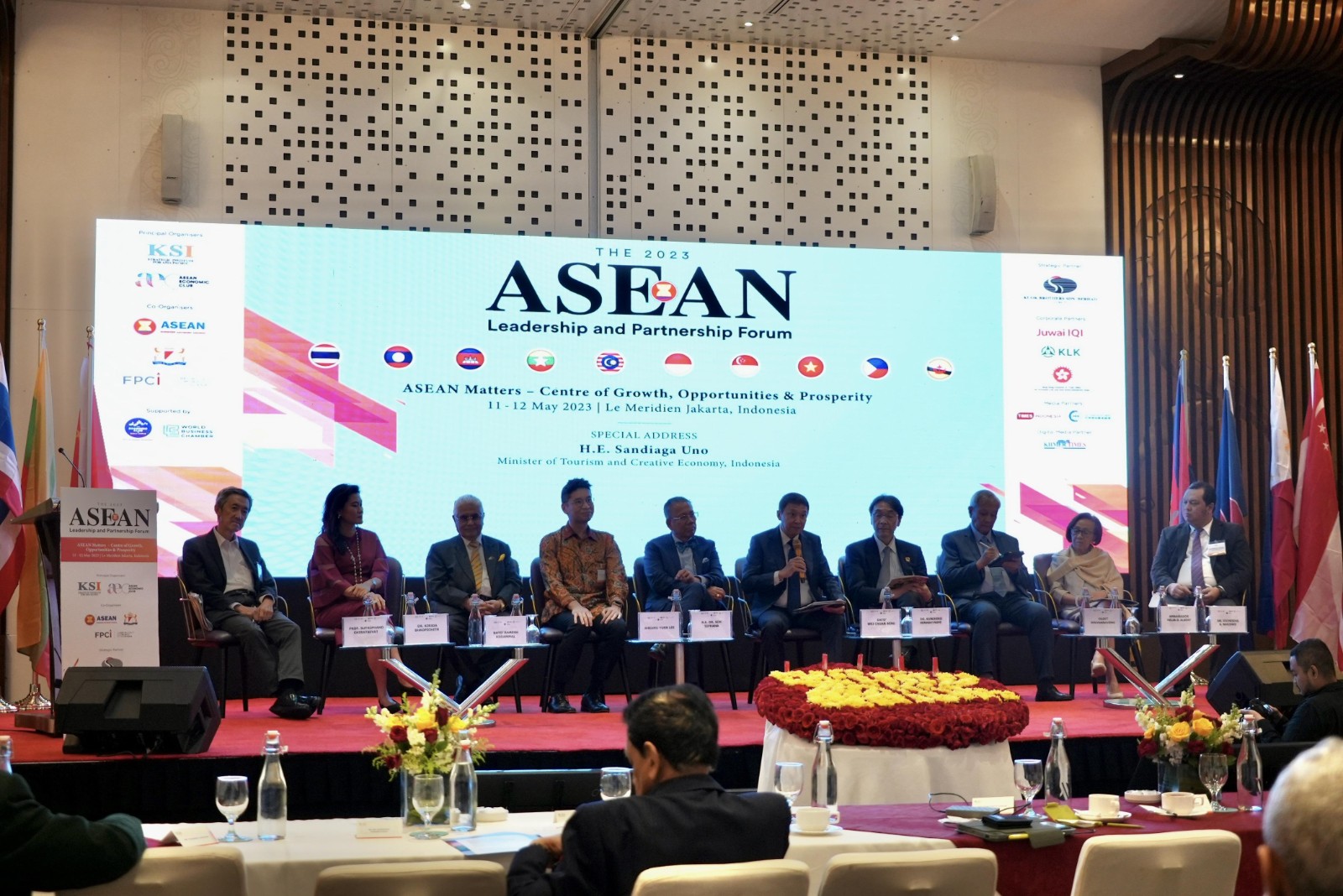2023-05-12
Prime Sarmiento

Emerging as a new growth center of world economy, Southeast Asia has to enhance connectivity and joint action to overcome challenges including post-pandemic recovery, geopolitical tension, climate change and digital disruption, according to participants in a regional forum held on May 12. Arsjad Rasjid, chairperson of the Association of Southeast Asian Nations-Business Advisory Council (ASEAN-BAC), said the ASEAN economy has a “growing impact on global trade”. With a steady rise in GDP for the past few years, ASEAN is now the world's fifth largest economy and the fourth largest exporting region, Rasjid said in his welcome speech at the 2023 ASEAN Leadership and Partnership Forum being held in Jakarta. This has “major implications” on the future of investment inflows and resilience of the global supply chain. “ASEAN is no longer a regional power which sits on the sidelines of the global economy,” Rasjid said, alluding to this year’s theme of the ASEAN summit. ASEAN countries are “broadly regarded as the future base of global production and consumption, or as (the Indonesian) government has defined it, as a new epicenter of growth.” Indonesia is this year’s rotating chair of the regional bloc. The two-day forum is held after the 42nd ASEAN summit at Labuan Bajo in eastern Indonesia. The forum’s theme “ASEAN Matters — Centre of Growth, Opportunities & Prosperity”, was organized by the KSI Strategic Institute for Asia Pacific, ASEAN Business Advisory Council, Indonesian Chamber of Commerce & Industry (KADIN), ASEAN Economic Club, and Foreign Policy Community of Indonesia. It was supported by the Economic Club of Kuala Lumpur and the World Business Chamber. Rasjid, who also serves as KADIN’s chairman, said it is in the best interests of ASEAN to approach the future of its development with “a spirit of togetherness, togetherness and cooperation as a solid community”. Michael Yeoh, chairman of the forum and KSI’s president, said in his introductory speech that ASEAN, as an organization, can only remain relevant to the next generation if there is a “greater sense of purpose, a greater sense of belonging to ASEAN”. This is why people to people connectivity needs to be prioritized. He said this can be done through the conduct of more educational and youth exchanges among ASEAN members. Rasjid and Yeoh’s speeches was a prelude to the morning session which focused on ASEAN connectivity. ALSO READ: ASEAN leaders confident in region being 'epicentrum of growth' One of the panel discussants is Kirida Bhaopichitr, director of Economic Intelligence Service at the Thailand Development Research Institute (TDRI). Kirida said climate change, increasing US-China competition and how artificial intelligence is threatening job security are among the major challenges that the region has to overcome. She said connectivity and collaboration will help the region “survive through this perfect storm”. In dealing with geopolitical tension, for example, Kirida said ASEAN needs to focus on building a resilient supply chain in the region that will make ASEAN a “very attractive” investment destination. She also cited climate change, and how this is “not an individual country issue”. “When there’s forest fire in Indonesia, it affects all the way to Singapore (and) Thailand,” Kirida said, alluding to trans-boundary haze. “If we don’t collaborate to mitigate and adapt to climate change… I don't think we will survive very long.” Kirida said AI is “very disruptive… How can we improve our skills and our technology together in order to weather the storm? I don't think any one country can do that. We don't have enough resources. We just want to contribute more resources together. This kind of connectivity will make us go forward”. Kunihiko Hirabayashi, secretary general of the ASEAN-Japan Centre, said building trust, transparency and co-creation are key to “people-centered collaboration”. He said climate change and environmental degeneration, for example, can’t be resolved by a single country. But by working together, ASEAN and its partner countries can find an “actionable solution”. Lee Sheung Yuen, director general of the Hong Kong Economic and Trade Office in Jakarta, discussed the close relationship between the special administrative region and ASEAN, having been major trading partners for the last 12 years. Hong Kong and ASEAN also have an existing economic and technology cooperation program. Lee said Hong Kong hopes to contribute more in the partnership with ASEAN through its financial, professional services, logistics and transportation sectors. Delia Albert, former Philippine secretary of foreign affairs, has recalled an old report which stated that the concept of ASEAN as a community only exists among academics, journalists and those who participate in ASEAN-related activities. Albert said the idea of a “shared values toward a shared destiny remains to be a wish to be fulfilled. That is the greatest challenge that ASEAN faces”.